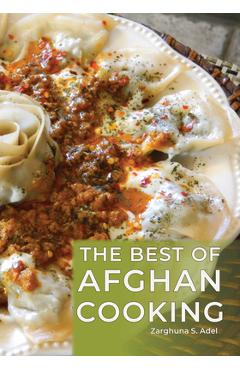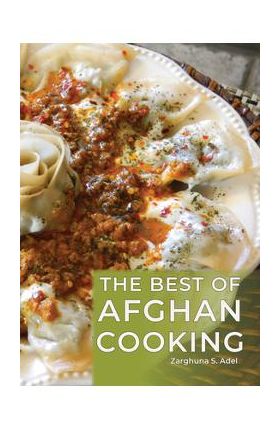Cosul este gol
Conectează-te ca să te putem notifica când primești un răspuns
The most comprehensive collection of authentic Afghan recipes published in English, this cookbook brings the legendary hospitality and foods of the Afghan table to readers everywhere.Since ancient times, Afghanistan's location in the heart of Central Asia has made it a crossroads for multiple cultures and culinary influences. The ancient city of Kabul was a hub for European, Chinese and Indian merchants as well as intellectuals and spiritual leaders. In this context, Afghanistan's rich and multifaceted culinary identity evolved.To this day, Afghans retain the tradition of preparing food with freshly harvested ingredients. In most villages, flour is still ground in local mills and cows are milked daily, and the milk is then processed into fresh butter or yogurt. Kabobs, ranging from chicken, beef, lamb and fish, are seasoned with delicate spices before grilling. A variety of fresh vegetables, fruits, and herbs, along with lentils and meat, are used to prepare traditional stews called qurmas. Considered Afghanistan's national food, rice dishes called palow are cooked with meat, onions, and distinctive spices such as cumin, cardamom, cinnamon, cloves, and black pepper. Dough prepared with fresh ingredients is shaped into bread, cookies, and cakes before being baked in a preheated ground oven called a tandoor. Aromatic spices and crunchy roasted nuts combined with fresh milk and wheat create unique desserts that are simple to prepare but deliver impressive results.Kabul native Zarghuna Adel brings a lifetime of cooking experience and years of research into this unique cookbook, which features authentic Afghan recipes that were lost or forgotten in the course of four decades of war and displacement. This volume features over 225 recipes, each with easy-to-follow instructions and a color photograph. Fifteen chapters cover the range of Afghan culinary offerings, from appetizers, soups, salads, and main dishes to condiments and desserts, and each chapter includes a detailed introduction to the history, origins, and cultural traditions that surround the recipes.Sample recipes: Ashak (leek dumplings with yogurt and ground beef) Kabob Teka (marinated lamb and vegetable kabobs) Badenjan Borani (eggplant appetizer with tomatoes and yogurt) Chapli Kabob (fried spicy ground beef patties) Qabeli Palow (long grain rice with onions, spices and tender meat) H



